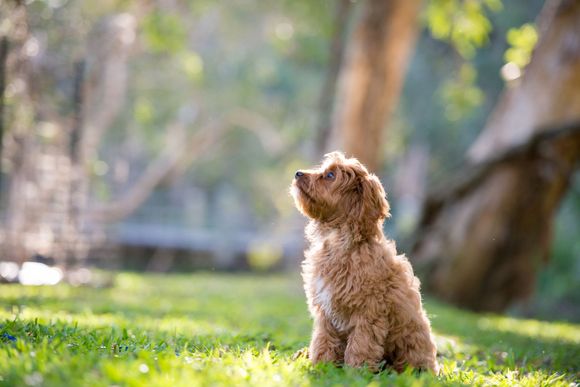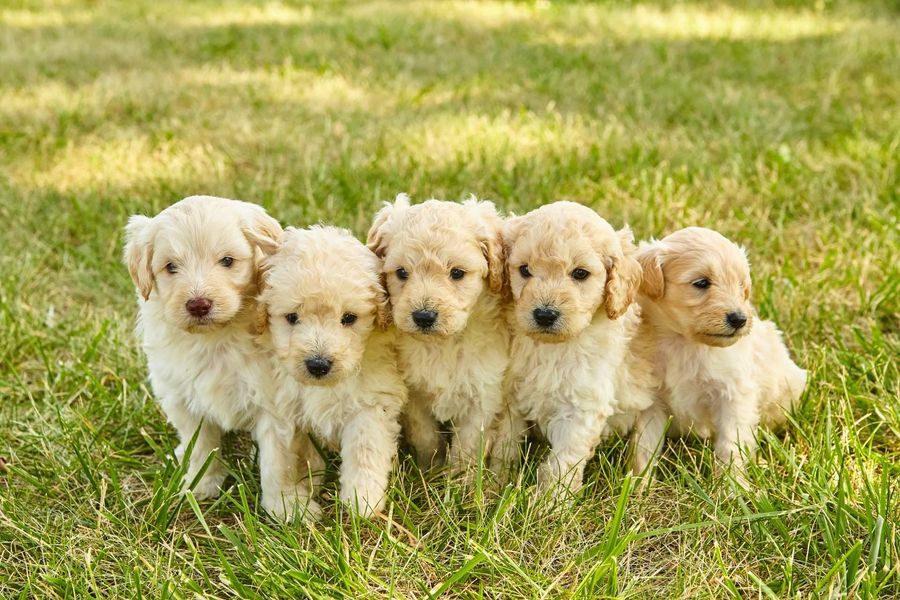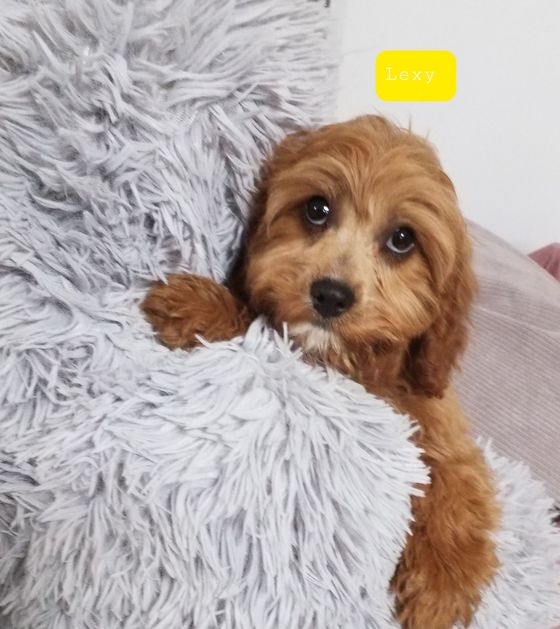Cavoodle F1, F1B and F2 Differences and Health Benefits
The Cavoodle, also known as the Cavapoo, is a popular designer dog breed resulting from the crossbreeding of a Cavalier King Charles Spaniel and a Poodle. This adorable and affectionate breed is beloved for its friendly disposition, hypoallergenic coat and overall charm. When delving into the details of Cavoodles, it's important to understand the different generations, specifically the F1, F1B and F2, each with its unique characteristics and health benefits.
The F1 Cavoodle
The F1 Cavoodle, or first-generation Cavoodle, is the direct offspring of a purebred Cavalier King Charles Spaniel and a purebred Poodle. This generation is a 50/50 mix of both parent breeds, inheriting traits from each.
Characteristics:
· Appearance: F1 Cavoodles typically exhibit a balanced combination of features from both parent breeds, such as a wavy or curly coat, a round face, and expressive eyes.
· Temperament: These dogs are known for their friendly and sociable nature, making them excellent companions for families, singles, and seniors alike.
Health Benefits:
· Hybrid Vigor: F1 Cavoodles benefit from what is known as "hybrid vigor" or "heterosis," which means they tend to be healthier than their purebred parents. This is because the genetic diversity reduces the likelihood of inheriting specific health issues prevalent in either the Cavalier King Charles Spaniel or the Poodle.
· Lower Allergy Risk: The Poodle genes contribute to a hypoallergenic coat, which is less likely to shed and cause allergies in sensitive individuals.
The F1B Cavoodle
The F1B Cavoodle is a first-generation backcross Cavoodle, resulting from the breeding of an F1 Cavoodle with a purebred Poodle. This generation is typically 75% Poodle and 25% Cavalier King Charles Spaniel.
Characteristics:
· Appearance: F1B Cavoodles often have a curlier and more hypoallergenic coat due to the higher proportion of Poodle genes. They may also have a more refined and elegant appearance.
· Temperament: These dogs retain the friendly and affectionate nature of the F1 generation while potentially being more intelligent and trainable, thanks to the Poodle influence.
Health Benefits:
· Enhanced Coat Quality: The increased Poodle genetics often result in a more hypoallergenic coat, which is beneficial for individuals with allergies.
· Reduced Inherited Health Issues: F1B Cavoodles may have a lower risk of inheriting health problems related to the Cavalier King Charles Spaniel, such as heart issues, due to the higher Poodle gene percentage.

The F2 Cavoodle
The F2 Cavoodle, or second-generation Cavoodle, is the result of breeding two F1 Cavoodles. This generation maintains a more balanced mix of genes from both original parent breeds.
Characteristics:
· Appearance: F2 Cavoodles can exhibit a wide range of physical traits, depending on the inherited genes. They may have wavy or curly coats and a blend of features from both the Cavalier King Charles Spaniel and the Poodle.
· Temperament: Like the F1 Cavoodles, F2s are known for their friendly and sociable demeanor, making them great family pets.
Health Benefits:
· Continued Hybrid Vigor: F2 Cavoodles still benefit from hybrid vigor, offering a lower risk of inherited health issues compared to their purebred counterparts.
· Balanced Traits: The genetic diversity within the F2 generation may result in a balanced mix of health benefits from both parent breeds, including reduced risk of hereditary conditions.
Each generation of Cavoodle—F1, F1B, and F2—brings its unique characteristics and health benefits. Whether you choose an F1 for its balanced traits, an F1B for its hypoallergenic coat or an F2 for its continued hybrid vigor, Cavoodles make wonderful pets that combine the best qualities of the Cavalier King Charles Spaniel and the Poodle. Understanding these differences can help potential owners make informed decisions about which generation best suits their needs and lifestyle.


